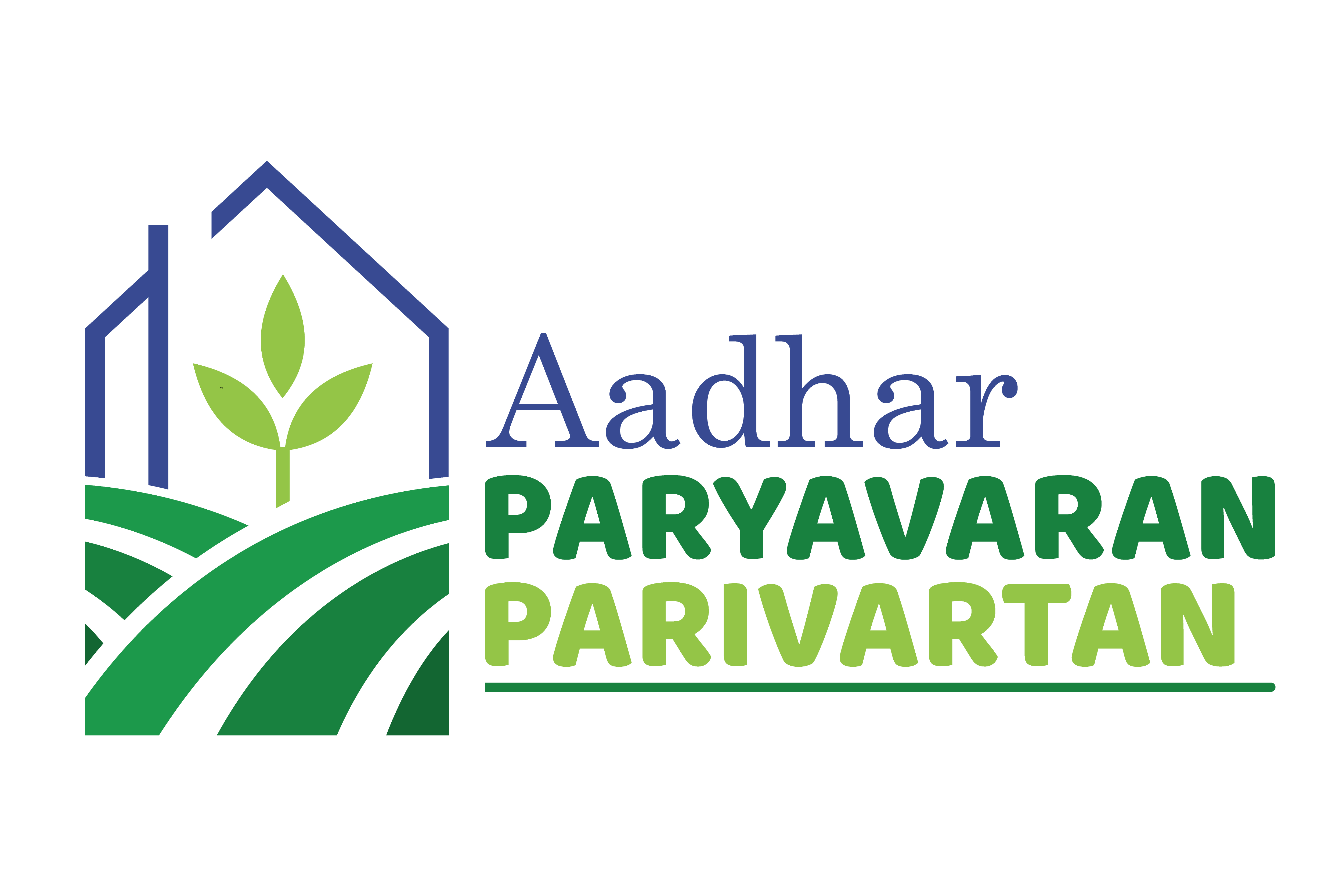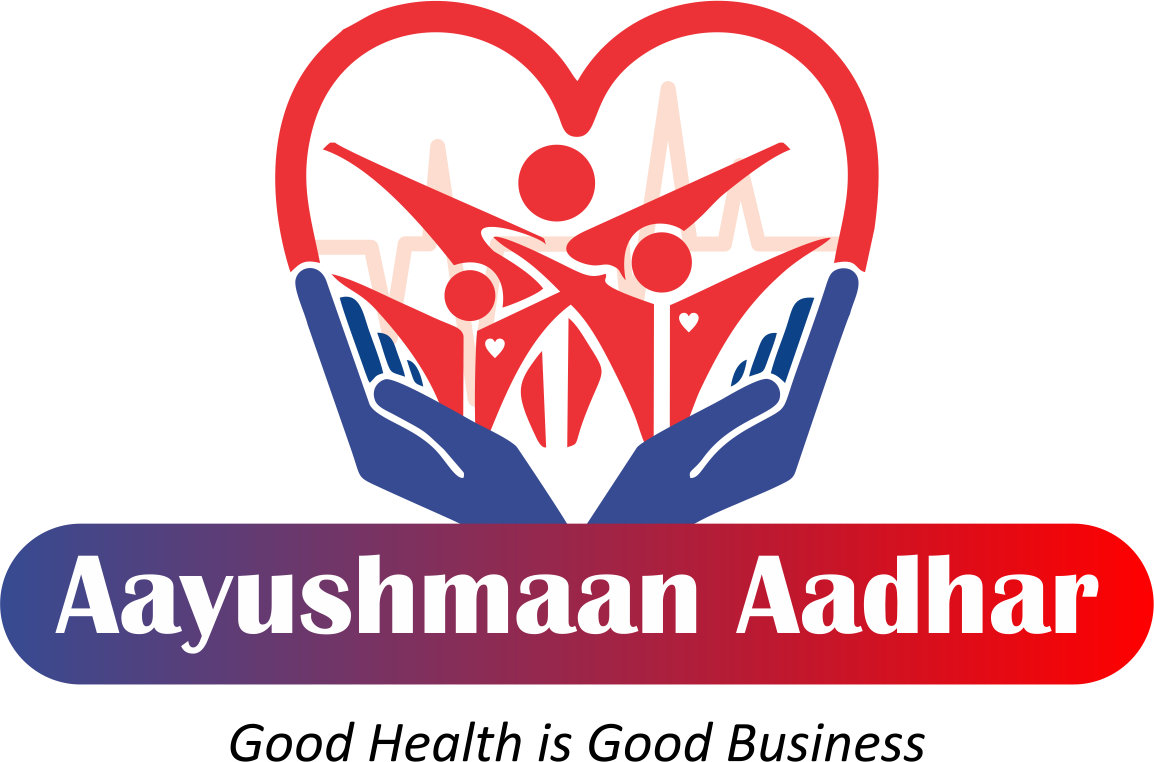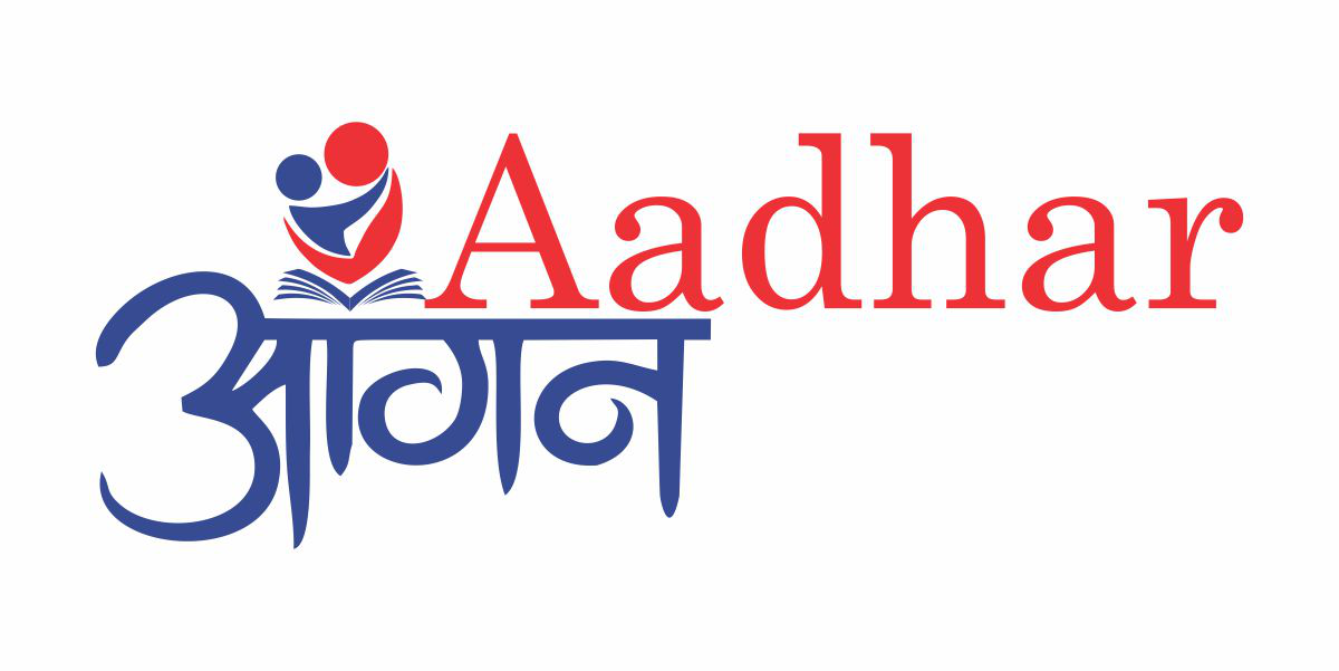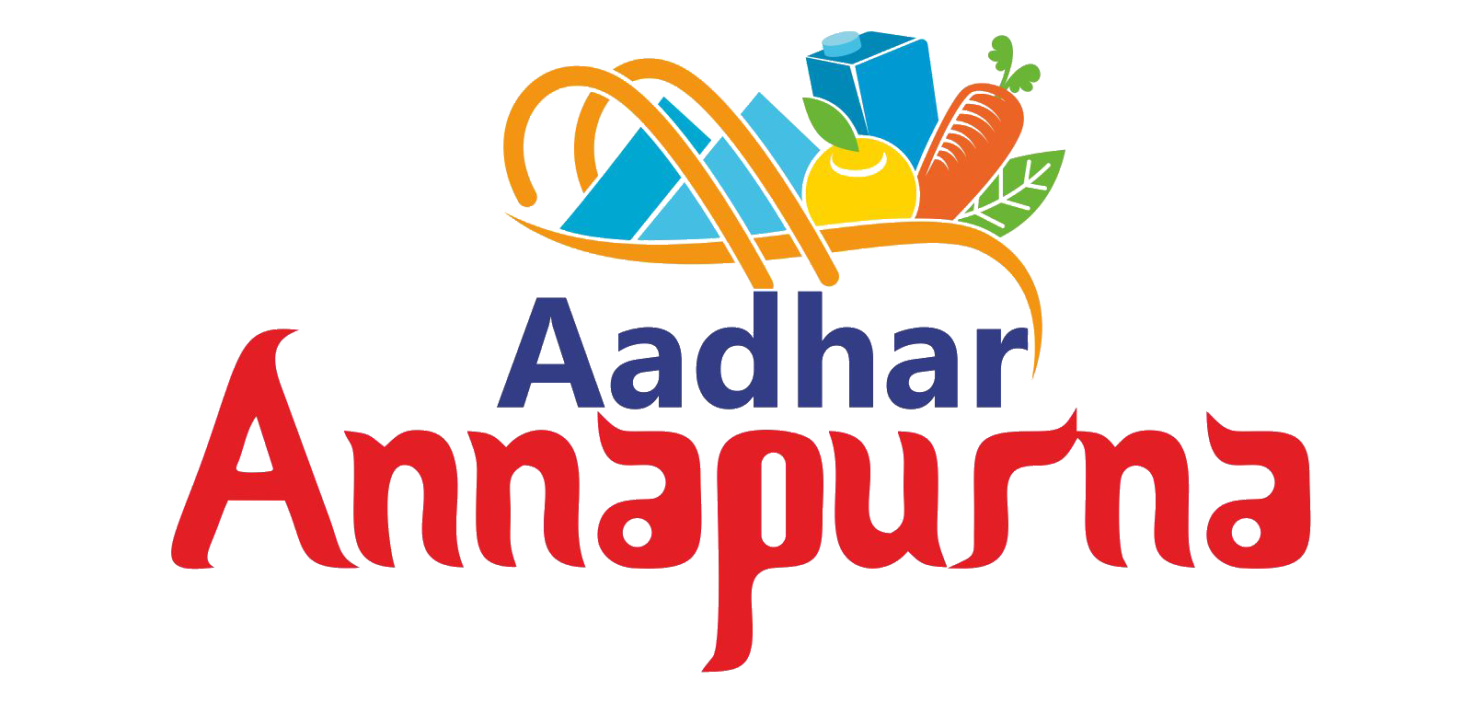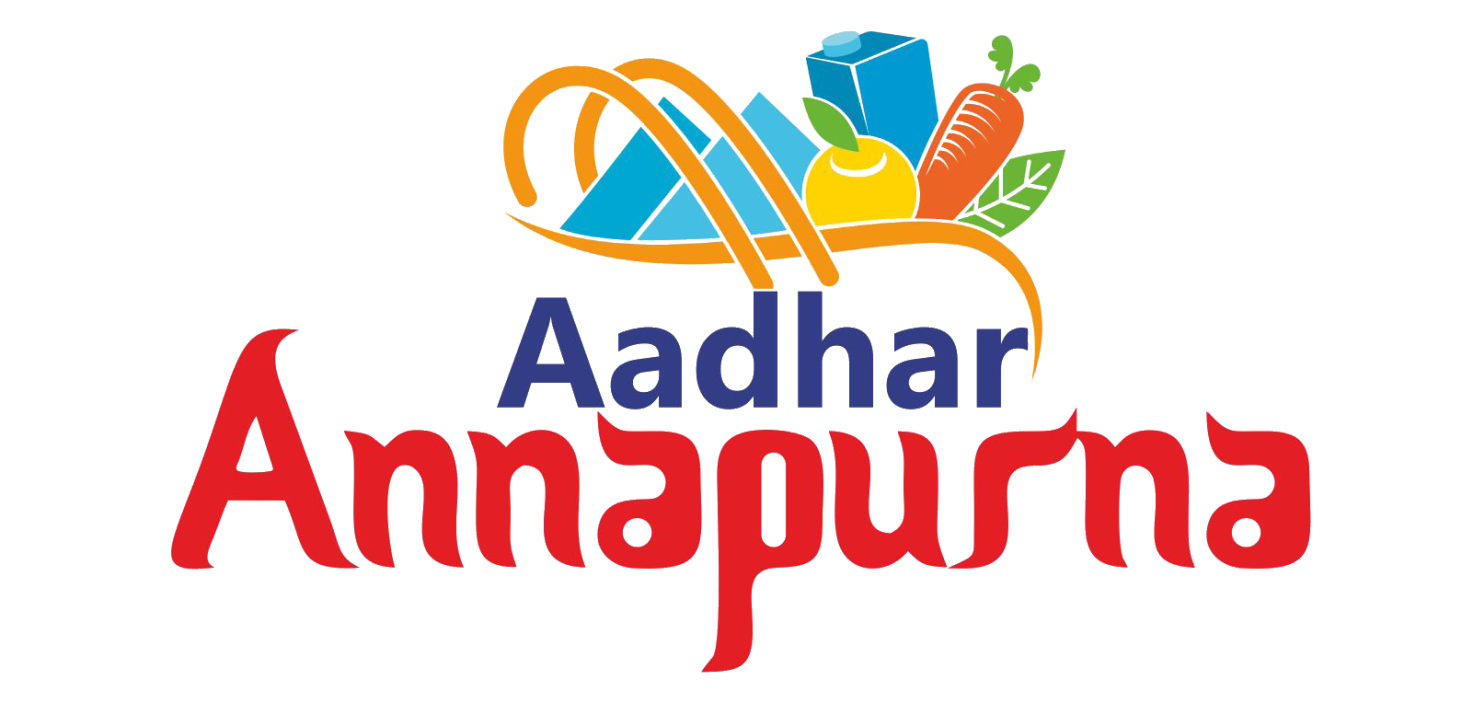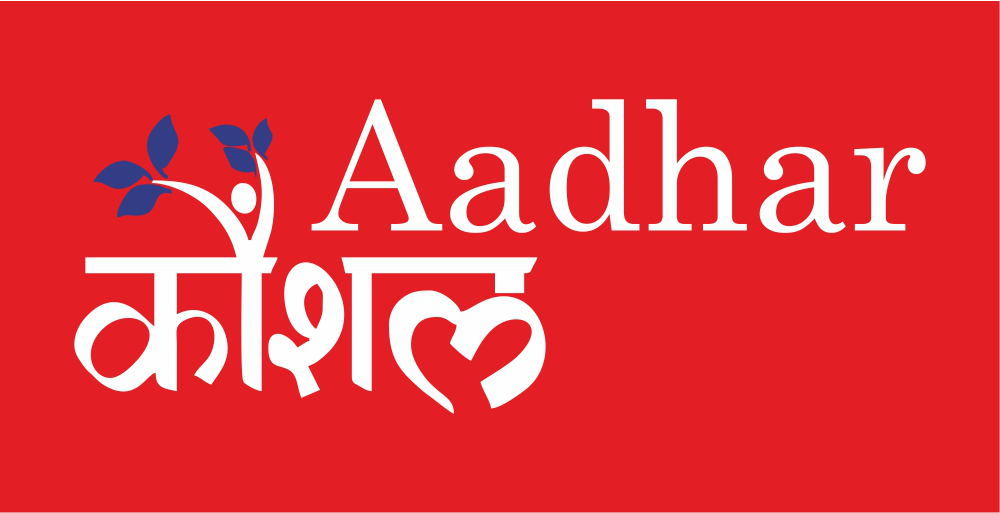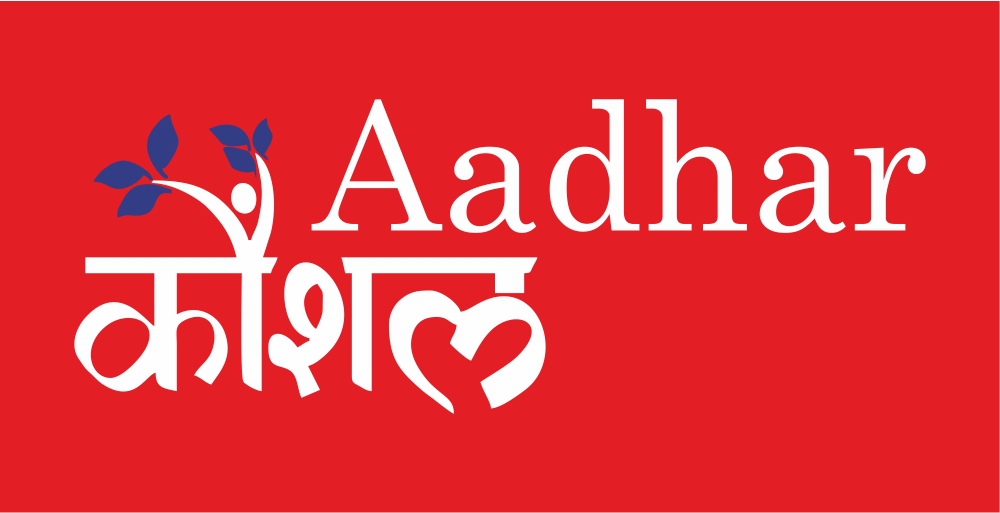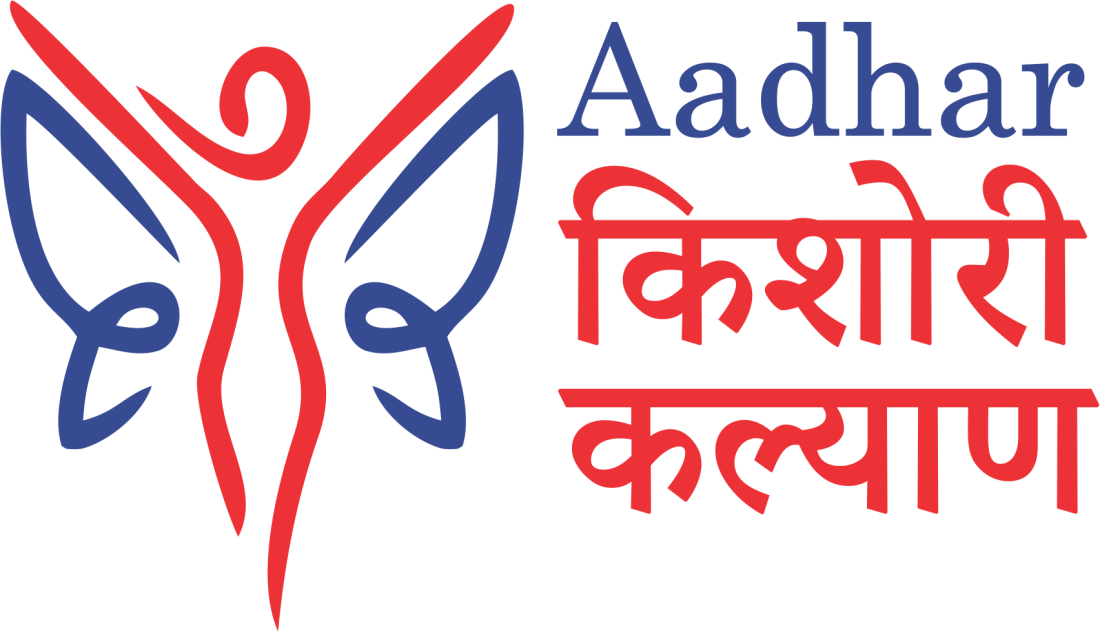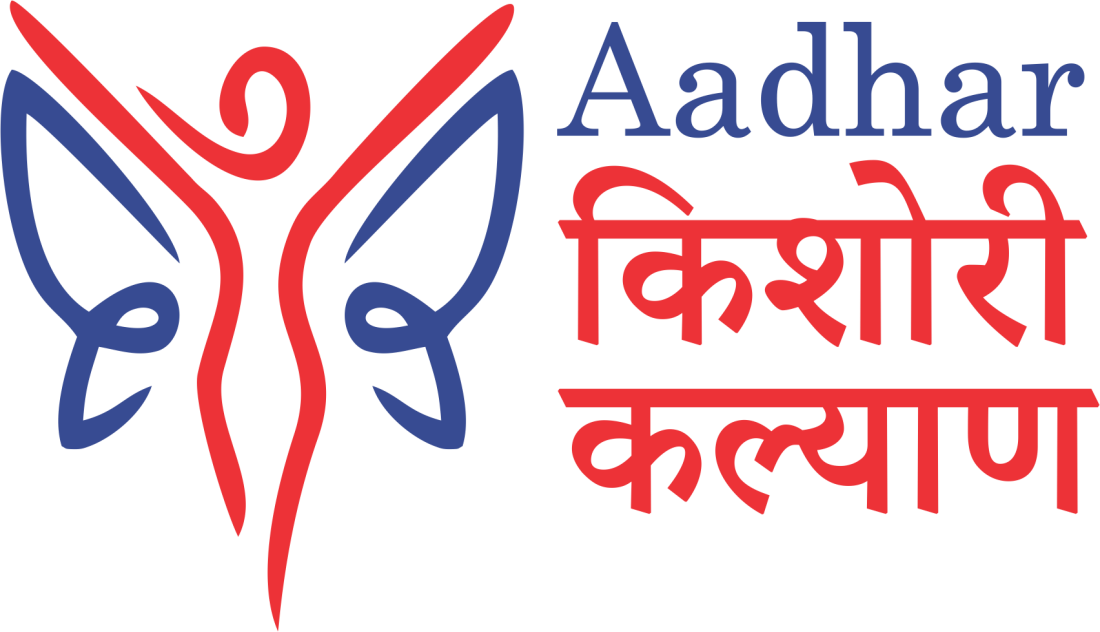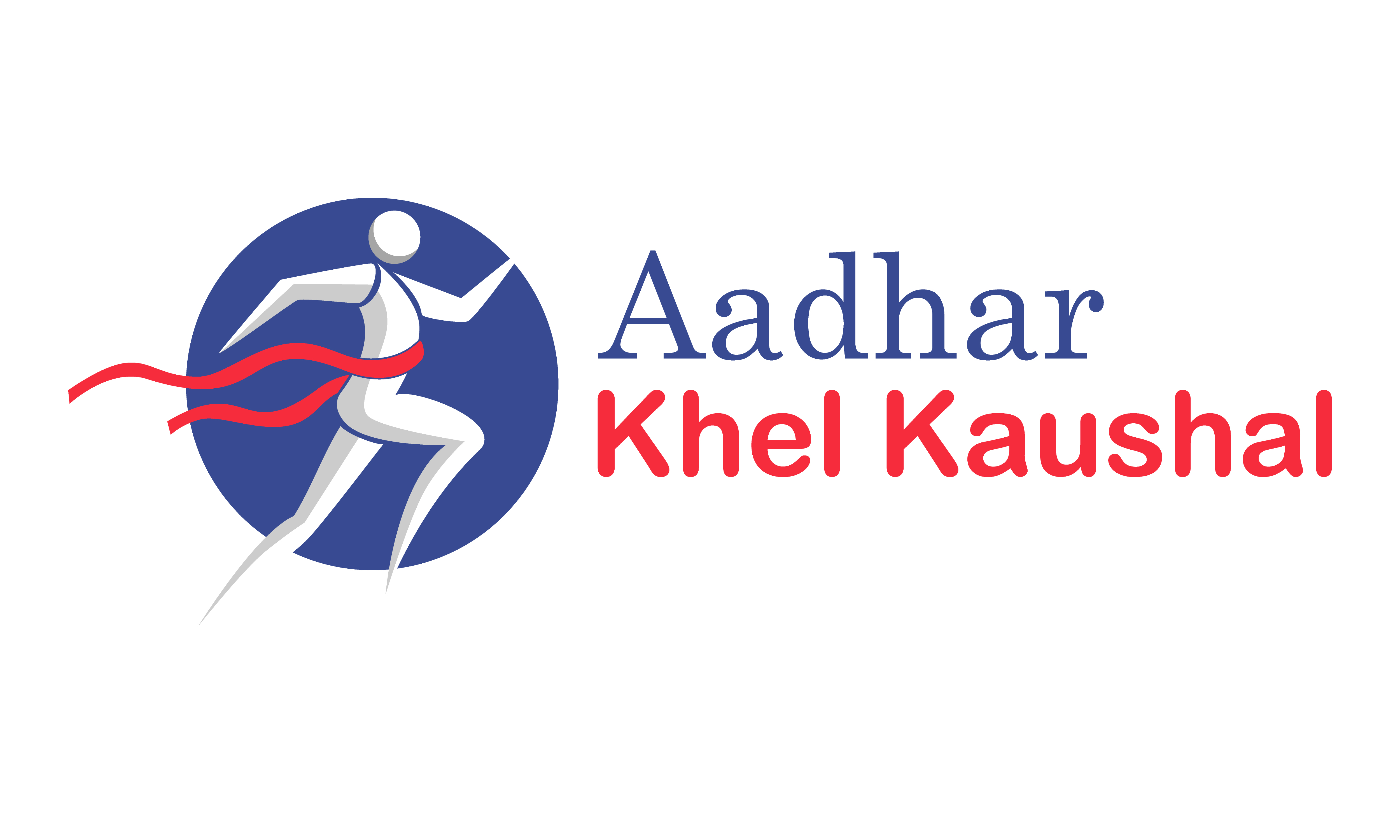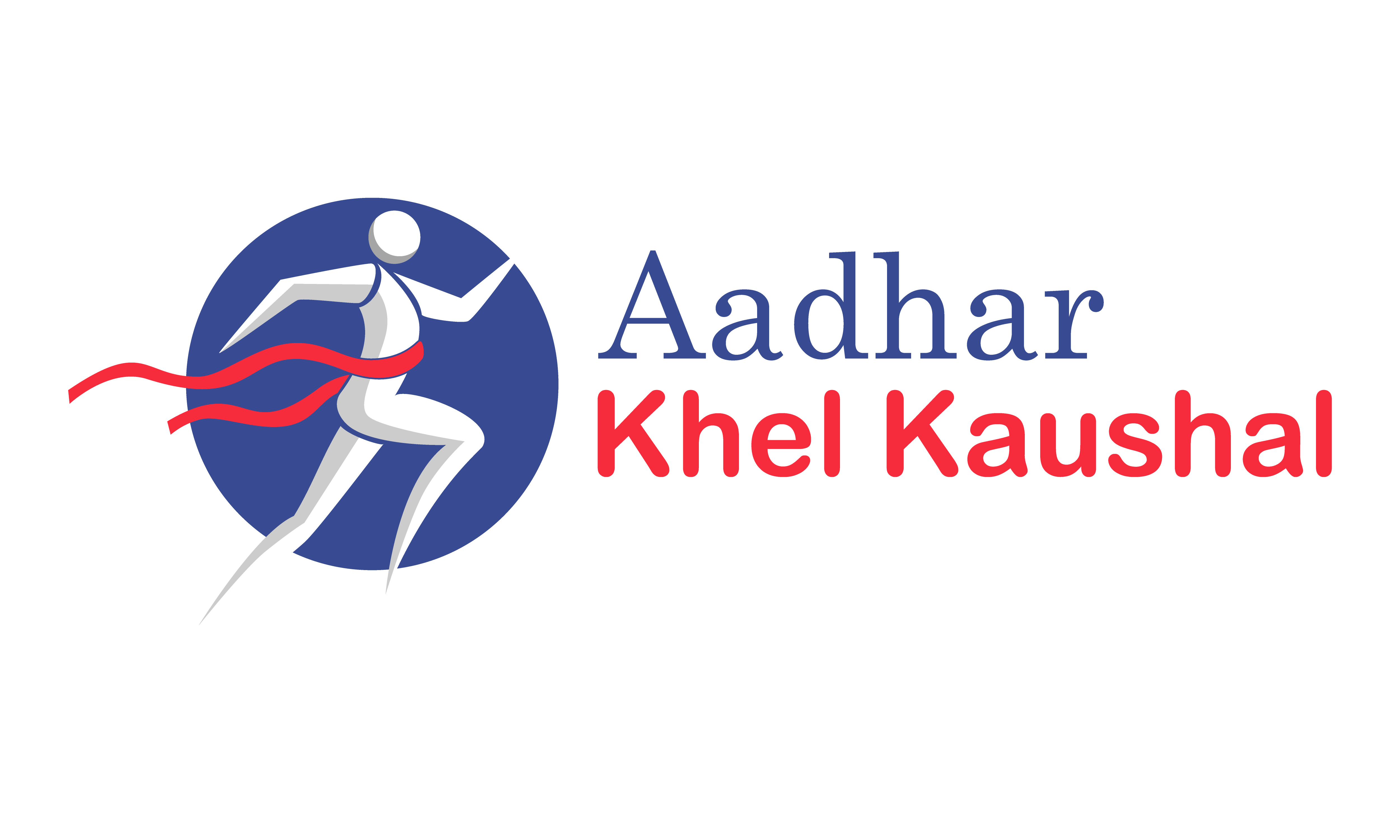2015 – the year which marked the onset of Aadhar’s commitment to social development. Being a socially responsible business organization, Aadhar has reached socially and economically challenged sections of society through its CSR initiatives to empower them and create an opportunity for their overall development. The CSR Vision and Mission of the company drives on 3 guiding principles – Sustainability, Accountability and Transparency.
With an intent to empower communities and in turn develop them into sustainable societies, the organization has collaborated for a myriad of projects with prime focus on Education, Health, Skill Development, Women Empowerment, Environment and Sports. Currently, the organization works in 20 states in India, primarily in semi-urban and rural locations in collaboration with like-minded agencies, research institutions and government to ensure contributing towards a positive change to the underprivileged population at the grassroot level. Furthermore, through such initiatives, we aim to forge a strong bond between employees and AHFL and help them feel more connected with the world around them.
Out of the 17 Sustainable Development Goals laid down by the United Nations, the CSR initiatives of Aadhar focuses on
1. No Poverty
2. Zero Hunger
3. Good Health & Well-Being
4. Quality Education
5. Gender Equality
6. Reduced Inequalities
7. Sustainable Cities & Communities
Quintessentially, AHFL’s corporate social responsibility includes the projects under the following broad headers -

Primary Schedule VII Areas covered:
Clause (iv) Safeguarding environmental sustainability, ecological balance, protection of flora and fauna, animal welfare, agroforestry, conservation of natural resources and maintaining a quality of soil, air and water which also includes a contribution for rejuvenation of river Ganga.
The environmental challenges faced by India demand urgent attention. While companies have been actively involved in various social causes, the focus on environmental sustainability has been often overlooked. Hence, AHFL realizes that it is crucial to recognize that a healthy environment is fundamental to achieving broader sustainable development objectives.
1. Water Security Projects
Through this intervention, the focus is on working towards natural resource conservation and ensuring to put an end to the crisis of accessibility of drinking and utility water in the area. The project includes construction of Borewell, ground water recharge structures and renovation of ponds to meet the above goals, thus indirectly helping the community to resolve the issues of water scarcity.
2. Installation Of Solar Panels
Under this collaboration, AHFL intends to provide cost effective solution for generation of energy & mitigating the dependency on non-renewable sources of energy through installation of Solar Panels at locations where its projects are already ongoing at multiple locations for upscaling. Currently, support has been extended at projects going on in Uttar Pradesh and Madhya Pradesh.
2015 – the year which marked the onset of Aadhar’s commitment to social development. Being a socially responsible business organization, Aadhar has reached socially and economically challenged sections of society through its CSR initiatives to empower them and create an opportunity for their overall development. The CSR Vision and Mission of the company drives on 3 guiding principles – Sustainability, Accountability and Transparency.
With an intent to empower communities and in turn develop them into sustainable societies, the organization has collaborated for a myriad of projects with prime focus on Education, Health, Skill Development, Women Empowerment, Environment and Sports. Currently, the organization works in 20 states in India, primarily in semi-urban and rural locations in collaboration with like-minded agencies, research institutions and government to ensure contributing towards a positive change to the underprivileged population at the grassroot level. Furthermore, through such initiatives, we aim to forge a strong bond between employees and AHFL and help them feel more connected with the world around them.
Out of the 17 Sustainable Development Goals laid down by the United Nations, the CSR initiatives of Aadhar focuses on -
1. No Poverty
2. Zero Hunger
3. Good Health & Well-Being
4. Quality Education
5. Gender Equality
6. Reduced Inequalities
7. Sustainable Cities and Communities
Primary Schedule VII Area
Clause (i) Health care including preventive health care.
A healthy population is necessary for society to function successfully. Dedicating CSR funding to boosting the primary healthcare response system is vital to supporting efforts to make healthcare accessible to all. With a focus on wellness, nutrition, and mental health, interventions and early detection models can improve basic health and facilitate the necessary focus on hygiene and sanitation.
The projects under this umbrella aim to address the challenges with respect to healthcare including access and awareness. With the intent to provide a holistic approach, Aayushmaan Aadhar includes initiatives which focus both on the preventive and curative solution for health-related concerns of the underserved population in the country.
1. Health Camps for the needy population
Creating awareness on general health and personal hygiene among the lesser privileged sections of society is the prime focus of this project. The health camps are conducted across India to ensure curative and preventive treatment including overall physical examination, basic assessment of the vital organs, basic blood tests, nutrition and gynecological counseling. Important factors like age, lifestyle, family background and other health related risks are considered while providing medical support.
Till date, 500+ health camps have been conducted impacting over 1 Lakh beneficiaries that include women, children, elderly and disabled as well. The project locations include Tier II and Tier III cities across 12 states.
States – Madhya Pradesh, Jharkhand, Maharashtra, Uttar Pradesh, Karnataka, Telangana, Delhi, Rajasthan, Chhattisgarh, Andhra Pradesh, Tamil Nadu, and Gujarat
2. Distribution of Mobility aids for the physically disabled individuals:
With an aim to eliminate the challenges of mobility of the physically disabled individuals who go through socio-economic struggles, this project focuses on providing prosthetic aids to PwDs. These aids include Jaipur Foot, Calipers, Crutches, and Hand. Basis the need assessment, beneficiary mobilization, screening camp, manufacturing of the prosthetic limbs and distribution camp are the successive processes through which this initiative provides support to underprivileged disabled youth. With the gift of mobility, these beneficiaries develop self-confidence and become independent contributing members of society.
The camps to provide mobility aid to target beneficiaries are currently being organized across locations in Gujarat and Maharashtra.
Till now, 175 prosthetic aids have been provided to 160 people with movement disability.
3. Support towards providing medical equipment
Investing in technology enabled clinical interventions can provide access to affordable and quality care infrastructure. In alignment with the thought and to ensure that the economically marginalized population could access and avail the medical tests conducted through high end medical equipment, AHFL envisioned to extend support in the form of medical equipment like ventilators and other advanced medical investigating machine to medical facilities/diagnostic centers/healthcare institutions.
Under the initiative, support has been extended for providing –
· Ventilator, Monitor and Dialysis Machines at Hospitals in Mumbai
· Set up of 3 wards – General Ward, Labor Ward and NICU Ward at a Charitable Hospital in Faridabad, Haryana
4. AHFL Clinic on Wheels
In India, there is a shortage of doctors, with a doctor-patient ratio of 1:1800 as compared to the recommended norm of 1:1000. The shortcomings in well-equipped healthcare facilities and trained healthcare professionals have severely affected the rural health infrastructure.
The primary focus of this initiative is early identification of diseases and timely medical intervention among women through teleconsultation and telemedicine services. This will further play a crucial role in bridging the gap between the people and health system. The intervention will further be helpful in reducing urogenital infections among women by addressing the issues with regards to the level-1 delay (delay in decision to seek care) and level-2 delay (delay in identification and reaching the facility) in maternal care. The program also focuses on educating the adolescent girls on basic gynecological issues, hygiene and sanitation, as preventive measures.
The project is currently being implemented in 20-gram panchayats in Rajasthan.
1. Health Camps for the needy population
Creating awareness on general health and personal hygiene among the lesser privileged sections of society is the prime focus of this project. The health camps are conducted across India to ensure curative and preventive treatment including overall physical examination, basic assessment of the vital organs, basic blood tests, nutrition and gynecological counseling. Important factors like age, lifestyle, family background and other health related risks are considered while providing medical support.
Till date, 500+ health camps have been conducted impacting over 1 Lakh beneficiaries that include women, children, elderly and disabled as well. The project locations include Tier II and Tier III cities across 12 states.
States – Madhya Pradesh, Jharkhand, Maharashtra, Uttar Pradesh, Karnataka, Telangana, Delhi, Rajasthan, Chhattisgarh, Andhra Pradesh, Tamil Nadu, and Gujarat
2. Distribution of Mobility aids for the physically disabled individuals:
With an aim to eliminate the challenges of mobility of the physically disabled individuals who go through socio-economic struggles, this project focuses on providing prosthetic aids to PwDs. These aids include Jaipur Foot, Calipers, Crutches, and Hand. Basis the need assessment, beneficiary mobilization, screening camp, manufacturing of the prosthetic limbs and distribution camp are the successive processes through which this initiative provides support to underprivileged disabled youth. With the gift of mobility, these beneficiaries develop self-confidence and become independent contributing members of society.
The camps to provide mobility aid to target beneficiaries are currently being organized across locations in Gujarat and Maharashtra.
Till now, 175 prosthetic aids have been provided to 160 people with movement disability.
3. Support towards providing medical equipment
Investing in technology enabled clinical interventions can provide access to affordable and quality care infrastructure. In alignment with the thought and to ensure that the economically marginalized population could access and avail the medical tests conducted through high end medical equipment, AHFL envisioned to extend support in the form of medical equipment like ventilators and other advanced medical investigating machine to medical facilities/diagnostic centers/healthcare institutions.
Under the initiative, support has been extended for providing –
• Ventilator, Monitor and Dialysis Machines at Hospitals in Mumbai
• Set up of 3 wards – General Ward, Labor Ward and NICU Ward at a Charitable Hospital in Faridabad, Haryana
4. AHFL Clinic on Wheels
In India, there is a shortage of doctors, with a doctor-patient ratio of 1:1800 as compared to the recommended norm of 1:1000. The shortcomings in well-equipped healthcare facilities and trained healthcare professionals have severely affected the rural health infrastructure.
The primary focus of this initiative is early identification of diseases and timely medical intervention among women through teleconsultation and telemedicine services. This will further play a crucial role in bridging the gap between the people and health system. The intervention will further be helpful in reducing urogenital infections among women by addressing the issues with regards to the level-1 delay (delay in decision to seek care) and level-2 delay (delay in identification and reaching the facility) in maternal care. The program also focuses on educating the adolescent girls on basic gynecological issues, hygiene and sanitation, as preventive measures.
The project is currently being implemented in 20-gram panchayats in Rajasthan.
Primary Schedule VII Areas:
Clause (i) eradicating malnutrition
Clause (ii) Promoting education
Early child-care and education in Aanganwadi
An ECCE (Early Child Care and Education) Initiative for ensuring nutrition, early childhood edcucation and care through capacity building and system strengthening.
The project focuses on capacity building through training to Aanganwadi Workers and helpers so that they can strengthen the Aanganwadis in respect to bringing solutions to malnutrition and community awareness towards it. The childcare services extended under this project include supplementary nutrition, non-formal early education, health and nutrition education, immunization, health check-up, and referral services while also providing pre and postnatal care for mothers. Furthermore, the ecosystem of Aanganwadis has been fostering social cohesion by combating stigma and discrimination. The initiative is unique and multifaceted - the cognitive skills of the child are nurtured, maternal health is taken care of, and early childhood years are shaped.
Under this umbrella, the project has been implemented at Aanganwadis across districts in Madhya Pradesh – 306 in Damoh, 112 in Tendukheda, 343 in Khargone and 136 in Burhanpur. Over 30000+ beneficiaries have been reached out through this initiative in the last 4 years.
Primary Schedule VII Area:
Clause (i) Eradicating hunger, poverty, and malnutrition
Prevention of malnutrition in children and adolescents
The Indian government initiative of providing free-of-cost mid-day meals for school going students is considered as one of the world’s largest school meal programme. The key agenda has been towards ensuring enrollment and continuation of education in school with a higher focus on primary and elementary education. However, the beneficiaries of the Mid Day Meal Scheme get restricted to government schools.
Through this initiative, the focus is to address the nutrition gap observed in underprivileged children (from slums) going to private low-income schools by providing nutritious meals.
The project has been conducted across schools in Andhra Pradesh, Gujarat, Karnataka, Puducherry, Rajasthan, and Uttar Pradesh benefiting over 600+ children till date.
In the current year, the focus is on providing healthy and nutritious meals to 1000 school going children across 6 schools in Mumbai, Maharashtra.
Primary Schedule VII Areas:
Clause (ii) Promoting education and livelihood enhancement
India has the potential to be the skill capital of the world over given the availability of large pool of young talent, but this talent needs to be transformed into income-generating avenues. However, the country struggles with a high rate of unemployment. There is an urgent need to enhance the educational gap and skill level of the youth.
With a motive of self-empowerment, employability, and economic growth of the youth, this CSR umbrella of AHFL focuses on projects to teach life skills and resilience to young children and youth.
1. Supporting higher education for needy students through Scholarship
Through this initiative, the aim is to spread the light of education by helping the aspiring meritorious students from economically marginalized families with financial assistance for their entire academic tenure. The scholarship is provided through our implementing partner for students post standard 12 for vocational, technical and college level studies.
The project currently focuses on students especially female students belonging to Haryana and the outskirts. Over 100+ students have been extended support till date.
2. Education fees to needy children
This initiative focuses on providing educational support to needy students. Yearly educational expenses of the beneficiary student – tuition fees, additional academic fees, cost of uniforms, shoes, books and stationery and part transportation expenses are covered to help them continue with their education.
The project has covered 80 students from 8 schools in Karnataka, Tamil Nadu and Kerela.
3. Skill development and livelihood opportunity for youths
Skill development is a vital means of encouraging and empowering the youth of today, ensuring them a secure future. Creating an environment conducive to learning through the infusion of educational/skilling interventions, vocational assistance, mentorship, social and emotional learning support is a need of the hour to establish a foundation for youth to succeed.
With an aim to create job opportunities for socially and economically underprivileged youths in urban and semi-urban spaces, AHFL has been extending support towards skill training of youth to make them economically self-sufficient and independent. Based on the need assessment, several training courses like Data Entry, Tally, Web Designing, Tailoring and Retail are currently run in this project with a course duration between 3-6 months. Furthermore, the project is also oriented towards market linkages where the implementing partner provides the skilled youth with employment opportunities post course completion.
Delhi and Haryana are the current states where the training centres have been set up to run this project.
500+ underprivileged have been extended support through this project till now.
4. Delhi Police Public Library
Delhi Police Public Library is a unique community policing initiative in collaboration with the Delhi Police for the underprivileged students. In alignment with the ‘Digital India Mission’, the project focusses on set up and development of infrastructure within police stations in Delhi in such a manner that extends cohesive environment to the underserved students preparing for competitive examinations and higher studies. The libraries are equipped with computers, HD TVs, e-library software, scanners, printers, internet facilities and the latest magazines and newspapers to support the students in their education and preparation of examinations.
There are currently 6 libraries which are operational across 6 police stations in Delhi.
5. Vocational Training Of Apprentices
As part of its CSR commitment, Aadhar has supported Vocational Training of Apprentices to empower youth with industry-relevant skills. Apprenticeships serve as a bridge between education and employment, enabling individuals to gain hands-on experience while preparing for the job market.
Aligned with the Ministry of Corporate Affairs' guidelines, this initiative has benefited over 600 individuals across Pan India, reinforcing AHFL’s vision of building a skilled, self-reliant workforce and contributing to inclusive community development.
Primary Schedule VII Areas covered:
Clause (ii) Promoting education and livelihood enhancement.
Clause (iii) Promoting gender equality
India faces multifaceted challenges when it comes to ensuring women’s participation in the labor force. In addition to literacy, other barriers in the form of social, historical, and cultural hindrances also need to be addressed. Thus, a focus on development of skills in women would be crucial in motivating them to develop life skills that will lead to higher paying and good quality jobs, better livelihood, economic independence, and the ability to earn for their families.
1. Skilling of Women survivors of acid attack
An acid attack on a person dramatically alters their life. They endure the pains of the attack as well as societal humiliation and difficulties. These challenges begin with health-related problems and finish with demands for equality in both employment and healthcare. In such a situation, it is crucial for us as a society to offer our assistance and support by investing in their rehabilitation and skill development to empower them and give them the confidence to return to their regular lives.
Hence, post assessment of their skill gaps, the beneficiaries of this project are provided skill training in computers, handicrafts, and bakery and confectionery to enable them to earn their own livelihood. To ensure their self-sustainability in the longer run, the beneficiaries are also provided training in soft skills and personality development along with Entrepreneurship Development Workshops (EDW). Additionally, the intervention also aims at strengthening the sustainability and infrastructure of Sheroes Home, which serves as training-cum-transitional center for community-based peer recovery and upskilling. Sheroes Hangout Café is the first and only project in the country that directly employs acid attack survivors.
The project is currently being implemented in three cities in Uttar Pradesh - Noida, Agra and Lucknow.
2. Livelihood Skill development of marginalized rural women
Women form a significant proportion of work force in India. However, there are some challenges that need to be addressed for building a conducive ecosystem. Through this initiative, the objective is to assess the status of rural and/or semi-urban women on selected domains of empowerment, to identify their skill sets, provide the necessary skill training and make them self-sufficient.
With the support of implementing partner, women having basic education aspiring to become economically independent are selected who are then provided training in Sewing Machine Operation and Hand Embroidery and Beauty and Wellness based on their choice and assessment of their existing skill set. Post training, they are supported for market linkages especially for those looking for self-employment or entrepreneurship.
The project implementing locations currently include Theni district in Tamil Nadu and Dewas in Madhya Pradesh. In the 1st phase of the project, the target beneficiary outreach is 600+.
Primary Schedule VII Areas covered:
Clause (vii) training to promote paralympic sports
The most important aspect of sports being introduced under CSR was the upliftment of all those sports and sportsmen that lack recognition and resources.
Aadhar Khel Kaushal intervention at AHFL focuses on supporting training and preparations of Indian para-athletes for Paralympics. The support is being utilized towards coaching and training, travel for tournaments, equipment and sports kits, monthly stipend, physiotherapy, nutrition, strength and conditioning and sports psychology of para-athletes. The focus of the project is to build the importance of inclusivity and recognizing the remarkable achievements of para-athletes. It further aims to promote a culture of respect and equal opportunities.
The para-athletes being supported under this umbrella are across the nation.
Entities who are registered as Not for Profit Social Welfare Society/ Trust/ Section 8 Company are eligible to submit the proposals.
- Aadhar Housing Finance has been awarded and recognised as ‘The Best Brand 2021’ at the 4th Edition of ‘The Economic Times – Best Brands 2021’ held at Sahara Star in Mumbai on 21st December, 2021.
- Aadhar Housing Finance was conferred with the 'CSR Times Award 2021' for the successful initiatives implemented under its CSR project, ‘Aayushmaan Aadhar’ at the 8th National CSR E-Summit, on 17th December, 2021.
- Aadhar Housing Finance was conferred with 'India CSR Leadership Award 2021' on 10th Dec, 2021 in 'Community Health' category for its impactful community-centric initiatives conducted under Aayushman Aadhar project.
- Aadhar Housing Finance has received ‘Maharashtra State Best Employer Brand Award, 2021’ at the 16th Employer Branding Awards hosted on 23rd Nov, 2021 by World HRD Congress for our exemplary work in HR. Aadhar has translated and combined vision with action leading to better people strategies and cultivation of competencies in order to enable the organization to be future ready.
- Aadhar Housing Finance Ltd bagged 5 awards across below categories at ‘Banking Frontiers NBFC Awards & Conference 2021’ (DNA Awards 2021) virtual summit held on 20th Aug, 2021. 1) Best Cyber Security Initiative - 1st Prize 2) Best API Initiative - 1st Prize 3) Best Omnichannel CX Initiative - 2nd Prize 4) Best Cloud Initiative - 2nd Prize 5) Esteemed Trophy (IT & Digital Group)
- Awards & Recognition: We received two prestigious awards at the 7th Edition of ‘National Awards For Excellence in BFSI 2021’ which was held virtually on 26th Aug 2021, in mentioned categories: 1) Aadhar Housing Finance Ltd received the ‘Affordable Housing Finance Company of the Year’ award, 2) Shri Deo Shankar Tripathi, MD & CEO, Aadhar Housing Finance Ltd has was conferred with ‘CEO of the Year’ award.
- Awards & Recognition: For the Second consecutive year, Aadhar Housing Finance has been certified as a ‘Great Place To Work’ by Great Place To Work Institute, a Global authority on recognizing high-trust and performance driven culture at workplaces.
- Awards & Recognition: Aadhar Housing Finance is certified as a ‘Great Place To Work’ by Great Place To Work Institute (India). This is a significant milestone for Team Aadhar as ‘The Great Place to Work Model’ is the world’s most researched, accepted and sustainable definition of a great workplace from an employee’s point of view. It is a comprehensive framework encompassing the overall employee experience ecosystem.
- Awards & Recognition: Aadhar Housing Finance won for the 3rd year in a row at The Outlook Money Awards. Team Aadhar received the Silver award in the Affordable Housing category at the Outlook Money Conclave held in Mumbai on 27th Feb, 2020.
- Awards & Recognition: Shri Deo Shankar Tripathi, MD & CEO, Aadhar Housing Finance received the ‘Top Most Influential BFSI Leaders’ award at the World BFSI Congress & Awards, in Mumbai on 14th Feb 2020.
- Awards & Recognition: Shri Deo Shankar Tripathi, MD & CEO, Aadhar Housing Finance received ‘the NBFC Leadership Award 2020’ at the 8th NBFC 100 Tech Summit held in Mumbai by Banking & Finance Post and Elets on 23rd January 2020.
- Awards & Recognition: The Aadhar Annual Report 2018-19 wins all India 3rd Prize in the PRSI National Awards 2019 at the 41st All India Public Relations Conference – Hyderabad
- Awards & Recognition: Aadhar Housing Finance is one of the ‘Best BFSI Brands 2019’: Aadhar Housing Finance received ‘The Economic Times Best BFSI Brands 2019’ award at the India-UAE Strategic Conclave 2019 held in Dubai on 15th October, 2019
- Awards & Recognition: Aadhar Housing Finance received ‘The affordable Home Loan Provider Of The Year 2018’ award from Union Minister Shri Nitin Gadkari at Outlook Money Conclave in Mumbai on 12th March, 2019 for the exemplary work in supporting the ‘Housing for All’ mission in India.
- Aadhar Housing Finance received the Prestigious ‘PMAY Empowering India Award 2019’ from Union Minister Shri Hardeep Singh Puri in Delhi on 5th March, 2019 for its exemplary work in supporting the ‘Housing for All’ mission in India.
- Dun & Bradstreet included Aadhar Housing Finance in 'India's Leading BFSI Companies 2019' list. The report was published by Dun & Bradstreet Information Services in March, 2019.
- Aadhar is declared one of the 1) ‘DREAM COMPANIES TO WORK FOR’ (Financial Services) and 2) ‘DREAM EMPLOYER OF THE YEAR’ presented by ET Now on 16th Feb, 2019 at the World HRD Congress in Mumbai.
- Shri Deo Shankar Tripathi, MD & CEO, Aadhar Housing Finance was recognized and felicitated as one of ‘100 Top Most Influential BFSI Leaders’ at the ‘World BFSI Congress’ held in Mumbai on 14th Feb, 2019.
- Aadhar Housing Finance bagged the ‘Most Promising Brand For Housing Finance’ award at the ‘World BFSI Congress’ presented by ET Now in Mumbai on 14th Feb, 2019.
- Aadhar Housing Finance won ‘Prestigious Brands of India 2019’ award at the conference held at Sahara Hotel in Mumbai on 12th Feb, 2019. The list of prestigious brands was judged and presented by BARC (Brand Advertising Research and Consulting), a global brand consultancy firm and ERTC Media, one of India’s leading independent media consulting & brand listing organisations. The recognition solidifies Aadhar as a leader within housing finance segment across various parameters such as brand recall, impact, trust, positioning, growth, reach, and innovation.
- Aadhar Housing Finance won the prestigious Finnoviti 2019 award at ‘Finnoviti Awards & Conference’ presented by Banking Frontiers and their Knowledge Partner Deloitte in Mumbai on 25th January, 2019 for innovative distribution and referral model named ‘Aadhar Mitra’.
- Aadhar Housing Finance bagged 2 prestigious awards at the ‘Banking, Financial Services & Insurance Awards’ presented by ABP News in Mumbai on 28th November, 2018:
- Housing Finance Company of the Year (Medium and Small) – for our exemplary work in the affordable housing finance segment.
- Marketing Campaign of the Year – for our recent brand campaign #GharBanegaTohDeshBanega.
- Aadhar MD & CEO awarded the ‘BFSI Leadership Award’ in Nov 2018 by ‘The Banking and Finance’ magazine and ‘elets’.
- Aadhar MD & CEO awarded the ‘Certificate of Excellence’ under “30 most innovative Business Leaders to watch in 2018” in July 2018 by ‘The CEO Magazine’.
- Aadhar receives the Award as the “Best Affordable Home Loan Provider of the Year 2017” at the ‘Outlook Money Awards’ March 2018.
- Aadhar CEO receives the ‘Inclusive Business Leaders Award’ from International Finance Corporation (IFC) for Aadhar’s exemplary work in Inclusive Business at the 2012 Inclusive Business Leaders Forum in Tokyo, Japan.
Report


